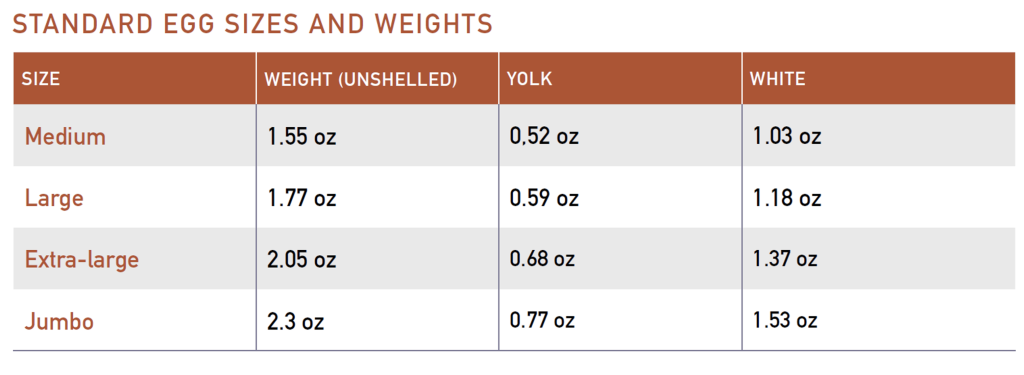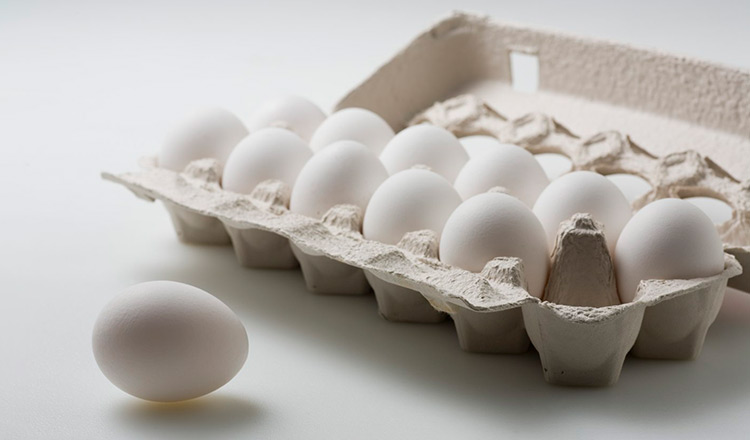At the CIA, each kitchen classroom is equipped with several scales for measuring ingredients, and we are firm believers in scales for home cooking and baking. Not only are weight measures more accurate, but they can make for quick and efficient measuring (not to mention less dirty dishes to clean later!).
And while you may not use your kitchen scale for everything, you may find it handy when it comes to measuring items that we typically call for "by the each." Ingredients in recipes are called for by volume (1 cup), weight (1 oz), or "each" (1 carrot). If you're scaling a recipe--that is, halving or doubling it, for example--it is easy to determine how many carrots you might need. But where things always get tricky are when we find ourselves needing 1/2 an egg.
And that is where the scale comes in. If you know the weight of your egg (measured after it's been cracked from its shell), then you know the weight of 1/2 an egg. That means you can blend your egg quickly with a fork, and then only keep the amount you need. If the whole egg weighs 2 oz, 1/2 an egg is 1 oz.
Knowing the weight of your egg can also be convenient when making large batches of recipes that call for eggs by weight. If you need 9 oz of eggs, how many eggs do you need to make this recipe? While no two eggs are exactly alike, commercial eggs are categorized by weight, so you can use these numbers as a good rough guideline.



